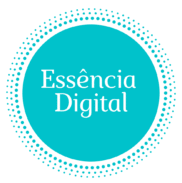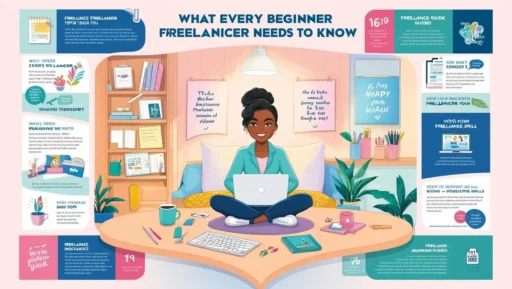Taking the leap into a freelance career is one of the most thrilling and terrifying decisions you can make. You are drawn in by the powerful promise of flexibility, the independence of being your own boss, and the opportunity to build a career around work you are truly passionate about. But the journey is not without its challenges. Freelancing demands immense self-discipline, a resilient spirit, and a constant willingness to learn, adapt, and market yourself.
For every beginner, the path is paved with questions and uncertainty. Knowing what to expect and how to prepare can mean the difference between a frustrating false start and a successful launch. Think of this as your field guide for the first year—a roadmap designed to help you navigate the common pitfalls, build a solid foundation, and accelerate your journey from an aspiring beginner to a confident, in-demand professional.
Mindset First: You Are Now a Business Owner
Before you send a single proposal or build your portfolio, the most critical work you must do is on your mindset. The moment you decide to freelance, you stop being just a practitioner (a writer, a designer, a developer) and become a business owner. This mental shift is everything.
- Embrace the Entrepreneurial Mindset: An employee waits for instructions; an entrepreneur actively seeks out problems to solve. Be proactive in everything you do, from finding clients to improving your skills.
- Confront Impostor Syndrome: It is completely normal to feel like you’re “not ready” or “not good enough.” Every successful freelancer has felt this. Combat it with action. Keep a “brag file” of every small win and piece of positive feedback you receive. Your skills are valuable, and you deserve to be paid for them.
- Reframe Rejection as Data: You will face rejection—from clients, on proposals, in negotiations. Do not view it as a personal failure. See it as valuable data. If your proposals are being ignored, analyze and improve them. If a client rejects your professional process (like insisting on no contract), they are filtering themselves out, saving you from future headaches.
Your Workspace: The Foundation of Your Productivity
Working from home offers incredible comfort, but it’s also filled with distractions. A dedicated and organized workspace is a non-negotiable tool for professionalism and focus.
- Create a Dedicated Zone: Even if you don’t have a separate room, designate a specific desk or corner of a room that is only for work. This creates a powerful psychological trigger for your brain, signaling that when you are in this space, it’s time to focus.
- Bookend Your Day: To maintain work-life balance, create clear start and end rituals. A “startup” ritual (like making coffee and reviewing your top 3 tasks) gets you into work mode. A “shutdown” ritual (like cleaning your desk and closing your laptop) helps your brain disconnect completely, preventing work from bleeding into your personal time.
The Client Quest: Strategies for Landing Your First Gigs
Finding those first few clients is the biggest hurdle. In the beginning, you must be relentless and strategic, focusing primarily on outbound efforts because no one knows you exist yet.
- Build Your Portfolio (Even with No Clients): Create high-quality sample projects. Re-design a local company’s logo, write a spec blog post for a brand you admire, or build a small web app. This proves your skill and initiative.
- Leverage Freelance Platforms: Pick one platform like Upwork or Fiverr and create a stellar, keyword-rich profile. Focus on writing hyper-personalized proposals that directly address the client’s stated problem and show you’ve read their brief carefully.
- Mobilize Your Warm Network: Inform friends, family, and former colleagues that you’re freelancing. Ask for introductions, not jobs. A warm referral from a trusted source is the easiest way to land your first project.
Communication: Your Most Underrated Skill
Your technical skills might get you shortlisted, but your communication skills will get you hired and retained.
- Be Hyper-Responsive: Aim to reply to all client messages within a few business hours, even if it’s just to say, “Thanks for this, I’ve received it and will look it over this afternoon.” This simple act drastically reduces client anxiety.
- Over-Communicate Progress: Clients hate silence. Send regular, brief updates. A simple message like, “Just wanted to let you know I’m on track to deliver the draft by Friday as planned,” builds immense trust.
- Use the Summary Email: After every client call, send a short follow-up email summarizing the key decisions made and outlining the next steps for both parties. This ensures everyone is aligned and creates a written record.
The Business End: Mastering Your Time and Money
Many talented beginners fail because they neglect the business side of freelancing.
- Track Your Time: Use a tool like Toggl or Clockify to track all your time, including non-billable hours spent on marketing, admin, and learning. This data is crucial for understanding your true hourly rate and pricing future projects profitably.
- Manage Your Money: Open a separate bank account for your business immediately. When a client pays you, transfer 25-30% of that payment into a separate savings account for taxes. Do not skip this step. Pay yourself a regular “salary” from what’s left over to create financial stability.
Protecting Yourself: Contracts and Payments Are Non-Negotiable
Never, ever start work without a written agreement. A simple contract is your best protection against misunderstandings and non-payment.
- Essential Clauses: Your contract must clearly define the Scope of Work, the Timeline, the Payment Terms, and the Revision Policy.
- Get a Deposit: For new clients, always require a deposit (typically 30-50%) before you begin any work. A client’s willingness to pay a deposit is the best indicator of their seriousness and ability to pay the full amount later.
Stay Relevant, Stay Valuable: The Habit of Lifelong Learning
The skills that are in demand today may not be tomorrow. Your long-term success depends on your commitment to continuous learning.
- Create a Learning Budget: Set aside a small portion of your income and a few hours each month specifically for upskilling. Take online courses, attend webinars, and read books related to your field.
- Learning is Marketing: Every new skill you acquire is a new service you can offer, allowing you to increase your rates and attract higher-quality clients.
Conclusion: Embrace the Journey
The path of a freelancer is a marathon, not a sprint. The beginning is the steepest part of the learning curve. Be patient with yourself, celebrate every small victory, and connect with other freelancers for support. Your confidence, your client list, and your income will grow with every project you complete. Every expert you admire was once a beginner, filled with the same mix of hope and fear you feel now. The key to their success and to yours is a proactive attitude and an unwavering commitment to both your craft and your business.
“Once you have the basics, the next step is to get your first clients as a freelancer.”

